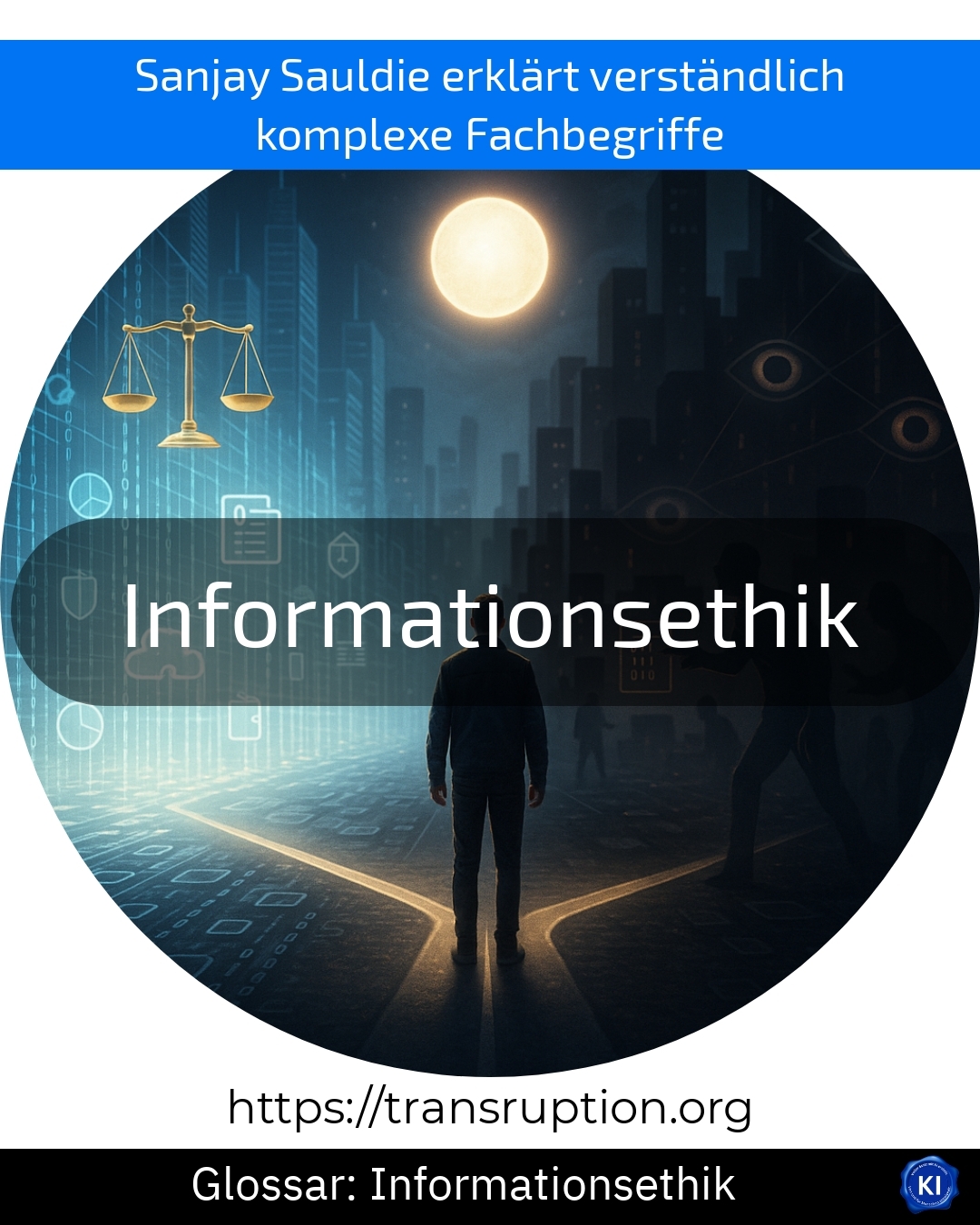The term information ethics is particularly at home in the categories of digital society, artificial intelligence and cybercrime and cybersecurity. Information ethics deals with the question of how we should handle data and information responsibly. This involves, for example, data protection, honesty when passing on information or fairness in automated decision-making.
An illustrative example: When an artificial intelligence pre-sorts job applications, information ethics asks whether all people are treated fairly and no one is disadvantaged on the basis of gender or origin. Or when large companies collect personal data, information ethics examines whether the collection and use of this data is ethically justifiable.
Information ethics helps to develop clear rules for dealing with digital information. It ensures that new technologies such as artificial intelligence or big data respect human values and rights. Especially in the digital society and in the area of cybersecurity, information ethics is an important tool for establishing trust and security in the digital space.















